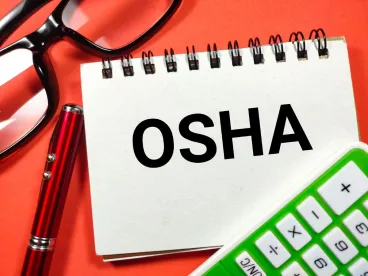Timing really does matter. In a “first of its kind” decision arising from a Pennsylvania meatpacking plant and its COVID response, a federal appeals court has severely limited when a private person may sue for alleged OSHA violations. Specifically, on January 31, 2023, in Jane Doe v. OSHA, the U.S Court of Appeals for the Third Circuit (covering Delaware, New Jersey, Pennsylvania, and the U.S. Virgin Islands) ruled that a private litigant may not maintain a case under the Occupational Safety and Health Act after OSHA concludes its enforcement proceedings.
In other words, once OSHA concludes its investigation and stops its work, an employee cannot bring or continue a case in federal court. This case is important because the court reinforced the rule that “[i]n general, OSHA, rather than private litigants is responsible for assuring workplace safety.”
The case arose when a group of employees at a Pennsylvania meatpacking plant complained that the employer failed to implement adequate COVID-19 prevention measures. The concerned employees asked OSHA to inspect the plant. Rather than immediately inspecting the plant, OSHA asked the employer to provide documents showing its preventative measures. The employees complained in writing that OSHA’s initial response was insufficient. OSHA then scheduled an inspection. The employees complained that a scheduled (as opposed to unannounced) inspection allowed the plant to direct its employees to “change their conduct” and “created the appearance” that the plant was complying with OSHA and CDC guidelines. Following the inspection, OSHA determined that there was no imminent danger to the employees, but OSHA continued its investigation using its standard enforcement proceedings.
The employees continued to think OSHA needed to do more and filed a lawsuit alleging that OSHA was failing to address the “insufficient COVID-19 prevention measures at the Plant.” The employees filed their action under a section of the OSH Act that allows a private suit to compel the Secretary of Labor to take a particular action and “for such other relief as may be appropriate.” OSHA moved to dismiss the case and, around the same time, concluded its investigation.
Ultimately, OSHA did not issue a citation for the alleged safety violations against the employer.
The trial court dismissed the case and held that the employees could not bring or maintain a case against OSHA after OSHA finished its investigation and decided whether to issue a citation or not. The Appeals Court upheld the dismissal and specifically ruled:
-
The limited private right of action against OSHA expires once OSHA has competed its enforcement proceeding.
-
Congress intended that the private right of action by an individual(s) is limited to subject matter and time — when OSHA fails to address an imminent danger and only while its enforcement proceedings are ongoing.
The case reinforces that OSHA is responsible for investigating workplace safety issues. But once OSHA concludes its investigation, an employer will not then have to worry about an employee filing suit. Thus, employers can have a sense of finality as to OSHA claims after an investigation concludes.




 />i
/>i

